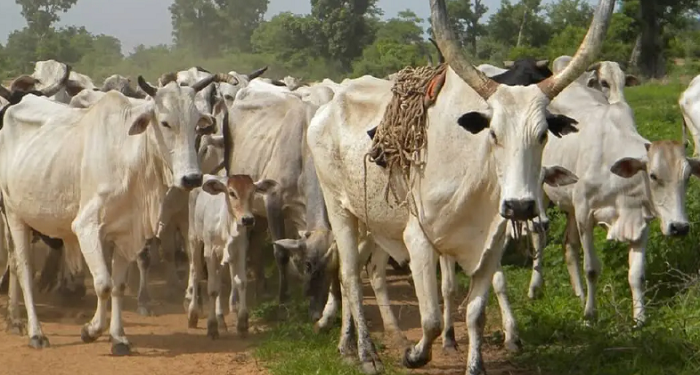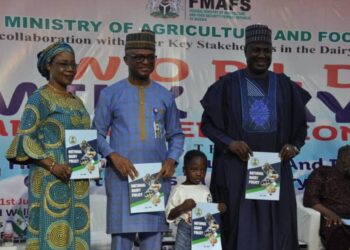Article summary
- FG says policy is necessary to ensure a stable and sustainable dairy sector, that would give livestock farmers a sense of belonging.
- It also reduces the protracted conflict between farmers and herders.
- The Federal Government’s target for milk production is 1.6 billion liters per annum to achieve self-sufficiency in livestock products and animal protein needs.
The Nigerian Government on Tuesday announced it has approved a national dairy policy to guide operations in the dairy value chain, boost livestock production, and reduce attacks on farmers by herders.
This was disclosed by the Minister of Agriculture and Rural Development, Dr. Mohammed Abubakar, in Abuja, speaking on the upcoming 2023 World Milk Day from May 31 to June 1.
Abubakar said the policy was necessary to ensure a stable and sustainable dairy sector, that would give livestock farmers a sense of belonging.
Dairy Policy
The Minister noted that this year’s milk day theme will be ‘Sustainable Dairy: Good for Planet, Good for You”, which he says speaks directly to the need for deliberate efforts to make milk production, collection, and processing climate-smart, the report added:
- “Abubakar said the policy was necessary to ensure a stable and sustainable dairy sector, that would give livestock farmers a sense of belonging. It also reduces the protracted conflict between farmers and herders.
- “The policy is also aimed to drive massive investments in the industry to create jobs and wealth for Nigerians.
Milk value chain
The Minister noted that the celebrations and interventions in the dairy value chain, have positively impacted the sector and elicited an upsurge in dairy activities in Nigeria, adding:
- “This is evidenced by the huge number of requests for collaboration from stakeholders in the industry and increased interest in the development of the dairy sector.
- “This is also a pointer to the positive impact the Federal Ministry of Agriculture and Rural Development and its partners have made in intensifying the need for backward integration.
- “As well as looking inwards and developing our indigenous dairy industry in line with the present administration’s policy on local content,” he said.
Financial support
The Minister added that the Agric Ministry through the Bank of Agriculture, would provide financial empowerment to livestock farmers to enhance their productivity and resilience, citing that Nigeria’s dairy industry would continue to receive support to boost the production of quality milk, meat, and other products.
On the impacts the ministry had made in dairy farming, he said capacity building and empowerment on hygienic milk production and processing, construction and equipping of 13 milk collection centers in Taraba, Adamawa, Bauchi, Gombe, Kwara, Niger, and Plateau States
- . “Through the Central Bank of Nigeria’s backward integration, the dairy sector was revitalised and has attracted foreign investments and the creation of ranches across the country.
The National President, of the Commercial Dairy Ranchers Association of Nigeria (CODARAN), Dianabasi Akpainyang, commended Federal Government over the approval of the policy, urging dairy ranchers in the country to support the government’s effort in order to have a competitive and productive dairy sub-sector.
What you should know
Nairametrics reported last year that The Federal Government disclosed that its target for milk production is 1.6 billion liters per annum to achieve self-sufficiency in livestock products and animal protein needs.
This was disclosed by Minister of Agriculture and Rural Development, Dr. Mohammad Abubakar, while unveiling the National Pasture Development Programme (NAPDEP), in Paikon Kore grazing reserve, in Abuja.
The minister stated that currently, 95% of Nigeria′s ruminant production is primarily managed under the traditional pastoral system, according to NAN.
Impact of the traditional pastoral system on Nigeria’s livestock industry
- Abubakar said,” It is worth noting that more than 95% of Nigeria′s ruminant production is primarily managed under the traditional pastoral system,” citing that it was a characteristic of an extensive system where naturally grown pastures were the main source of nutrition for the animals.
- ”Therefore, herders and husbanders rely on mobility in search of feeds, water, and friendly grazing areas.
- ”The result of this continuous movement in search of pasture has adversely affected the animals’ attainment of their optimal productivity and consistently impaired our national capacity for self-sufficiency
- “It also affected livestock products and animal protein needs, especially our national target of 1.6 billion liters of milk per annum.”



















